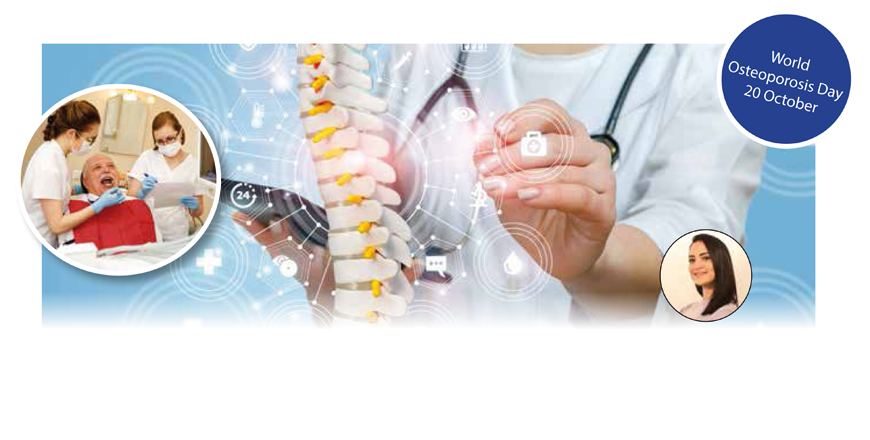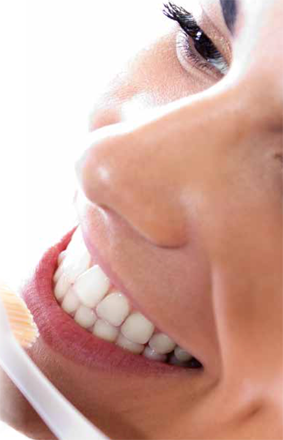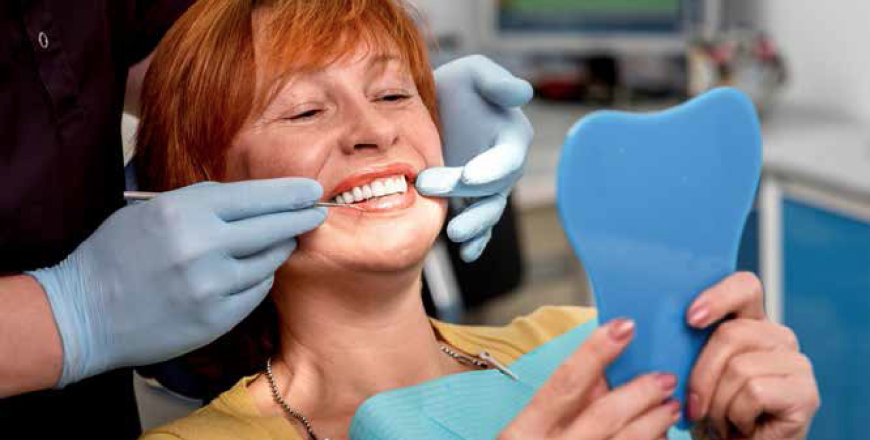You are here
Osteoporosis and your teeth
By Dr Reham Ma’ani , Family Flavours - Oct 29,2023 - Last updated at Oct 29,2023

By Dr Reham Ma’ani
dental and oral surgeon
Bone loss and infections
Infections are usually the main cause of bone loss in teeth; the infection can be in the nerve of the teeth, root,or in the gums. Some patients may suffer from gum infections for several months or years without knowing and if regular check-ups are not being done.This could lead to bone loss in the region of the infected tooth or set of teeth.
Ageing, menopause and Vitamin D deficiency
The main causes of osteoporosis are ageing,menopause and Vitamin D deficiency. Because of this, osteoporosis can have a direct negative effect on gumslike periodontal disease, leading to the loss of teeth.Osteoporosis has a huge impact on the jaw bone that supports the teeth, but it does not cause tooth decay.
In addition to the correlation between osteoporosis and oral health, some medications used to treat osteoporosis can impact your teeth negatively.In particular, bone strengthening medications which cancause a rare but serious condition called osteonecrosis, which can severely damage the jaw bone.
Your dentist may recognise the early stages of osteoporosis and be the first health professional to suspect that you have osteoporosis. Osteoporosis can weaken bones by reducing their density and is common in women over 50.
Did You Know?
Women with osteoporosis are three times more likely to experience tooth loss, say health experts, but it’s the loss of bone density and gum disease that are the culprits
Did You Know?
Men do get osteoporosis especially those aged 65years and beyond. Tooth loss affects approximately
1 in 3 men and women over the age of 65
** New York State Osteoporosis Prevention and Education Programme
Over the years, there have been more men havingfractures due to fragile bones
Source: National Institute of Arthritis, Musculoskeletal and Skin Disease
Reprinted with permission from Family Flavours magazine
Related Articles
Women are more susceptible to changing hormone levels at puberty and from certain types of birth control, pregnancy and menopause. These hormonal changes can impact oral health. It is important to learn more about the connection between hormones and women’s oral health.
Your dentist may be the first person to notice changes related to menopause because symptoms of overall bodily changes often appear first in the mouth.
Drinking coffee can feel great and help you feel energised for the day. However, this is a false feeling and what’s more, your teeth and gum health are at risk too.


















